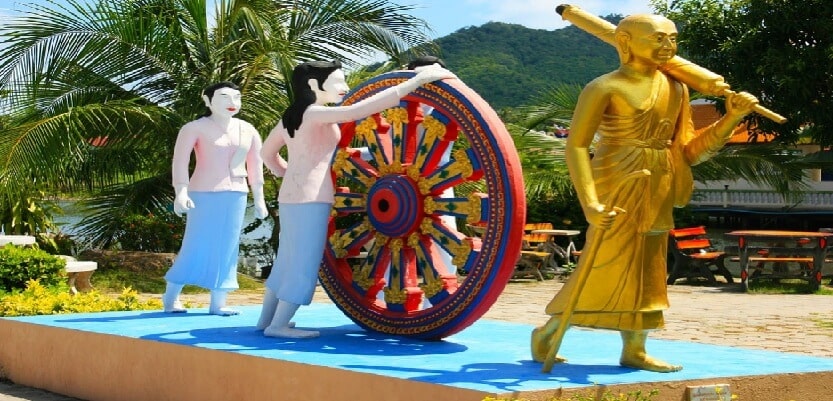The entire universe is a manifestation of God. There is nothing good or bad in this universe. The good or bad is only determined by one’s attitude towards the happening.
What is Karma?
Karma is nothing but action or work. As they say, for every action, there is an equal and opposite reaction. Hindu philosophy believes that every action or intent of an individual which is done with a desire for fruit will be rewarded in the same way in the future. Good intention will result in good karma (reward) and bad intention will result in bad karma (punishment). By continuously doing certain karmas for long, will lead to samskaras.
Karma may be performed in three different forms: namely Kayika (performed through the body), Vachika (performed through the speech), and Manasika (performed through the mind). One should talk as he thinks and should act as he talks. Therefore, to be true to oneself, all three aspects should match.
Concept of Reincarnation
Based on one’s karma and desires, a soul gets a cycle of births and death in this world. According to Hindu scriptures, a soul will go through 84 lakh yoni janmas or births as a different species before reincarnating in the human form.
Soul, a pure consciousness, when goes through different life forms, attracts many impurities. However, these impurities are attached to only body and mind. The soul is always pure and uncontaminated.
As long as we identify ourselves with the body and mind, the results of the karma have to be enjoyed. Till this identity exists, one will enjoy pleasure, pain, suffering, happiness. This is called Karma bandhana. The identification happens because of a past memory. What we call this body or the world itself is the entanglement, which is the result of karma. The ultimate aim of human beings will be to come out of this entanglement, which is called ‘Moksha’ or liberation.
Types of Karma
There are three types of Karma. These karmas are not detached by others but are interlinked to each other.
- Sanchita Karma or Accumulated Karma
- Prarabdha Karma or Matured Karma
- Kriyamana or Agami Karma or Forthcoming Karma
Sanchita Karma
This is the storehouse of Karma. The actions performed from the past many births are stored in the form of memory. With every new birth, the new memories or karma added to the storehouse. These accumulated karmas are referred to as Sandhita Karma.
Prarabdha Karma
Out of this Sanchita karma, some karmas get matured or operative and felt in the present life. It is like a fruit when it is ripe, it will detach itself and fall. Similarly, prarabdha karma is like ripened fruit, which has to be experienced. It cannot be altered in any way. The present life including the body is the result of the prarabdha karma.
Under Prarabdha karma, there are again three types:
- Iccha Prarabdha - enjoyed through one’s own will
- Aniccha Prarabdha - enjoyed involuntarily and
- Pareccha Prarabdha - because of the desires of others.
Agami Karma
The consequence of the action performed today will have a bearing tomorrow. You may enjoy or suffer from this action. The choices you make today will impact your future. These are referred to as Agami karma. It can also be referred to as the karmas to be performed in the future.
So, to sum it up everything, the present action (prarabdha) is based on past experience (Sanchita) and it will have an impact in the future (Agami). Here, Sanchita karma and Agami karma can be changed. Sanchita is like a source. By conscious effort, one can change the memory of the source. We may not be able to change the prarabdha, but we can certainly change the attitude of looking towards the karma. If any way it has to be experienced, then experience it with joy.
How to overcome Karma Vasana or Impressions
As said earlier, prarabdha karma has to be enjoyed. However, still, a part of prarabdha (Iccha prarabdha) can be altered through service or seva. And, Sandhita and Kriyamana karmas can be destroyed through surrendering to God, sacrifice, charity, service. Therefore, it is said that.one can come out of karma by doing service (or seva) or by undergoing punishment.
There are three ways in which one can come out of karmic bondage:
- Self-study by the help of scriptures (knowledge and wisdom)
- By the help of a Guru
- By intense sadhana (trial and error method)
When there is no bondage and also no desire left, that soul only gets final freedom or liberation.





